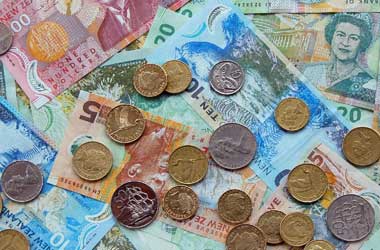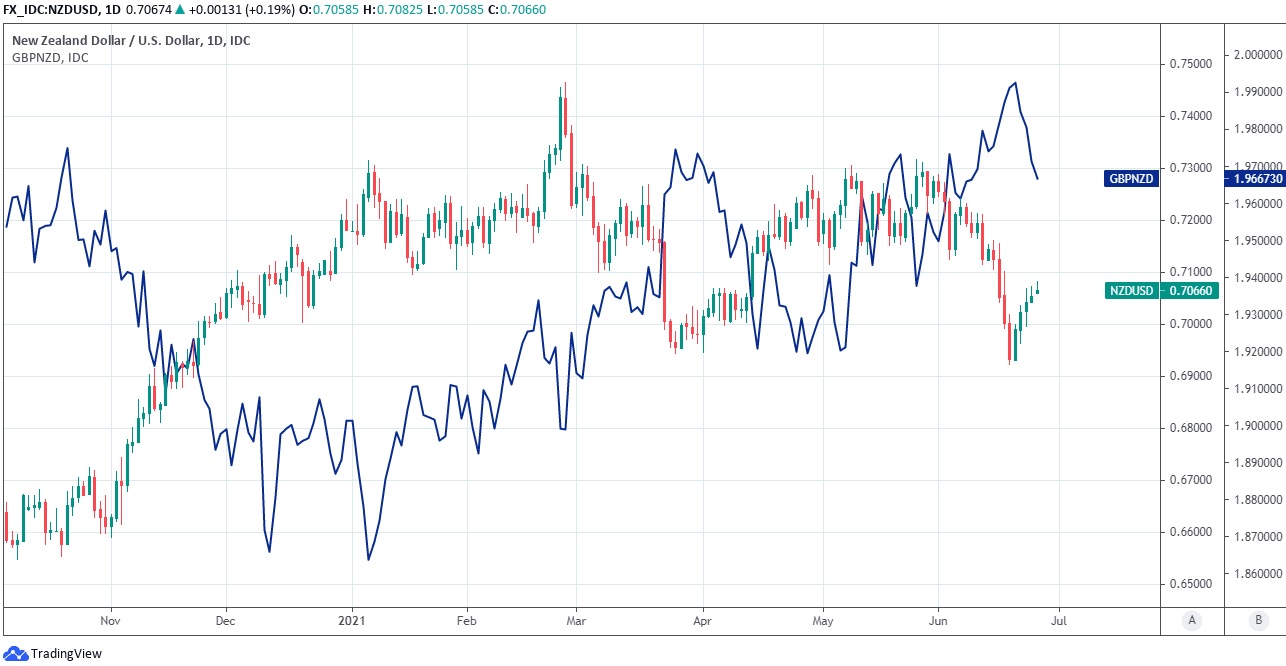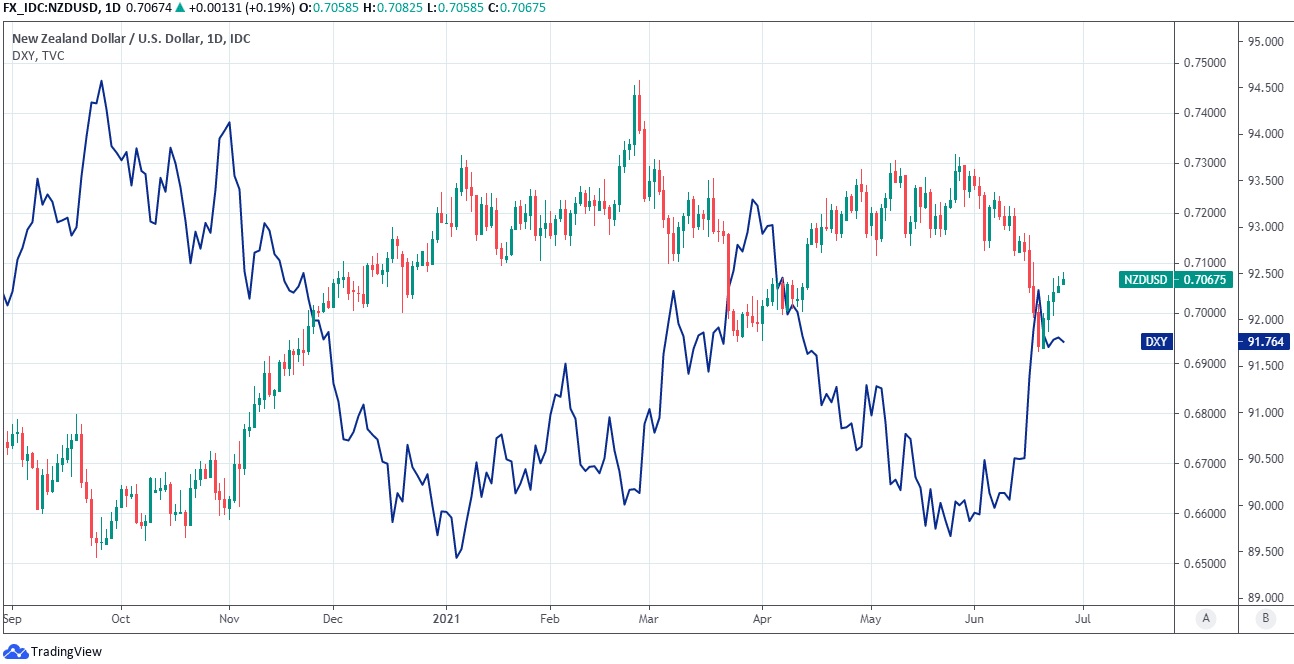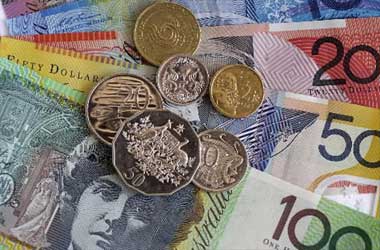 The Kiwi dollar gained ground against its peers before the end of last week’s trading. Specifically, the New Zealand dollar recorded its robust gain against the pound, which did not fare well even against the greenback. Notably, the US dollar made sharp gains against the pound on Friday last week.
The Kiwi dollar gained ground against its peers before the end of last week’s trading. Specifically, the New Zealand dollar recorded its robust gain against the pound, which did not fare well even against the greenback. Notably, the US dollar made sharp gains against the pound on Friday last week.
Barring the pound, the US dollar lost ground against all other major currencies Friday, paving way for handing over more than 50% of the gains made by the latter against its peers before and after the June monetary policy meeting held by the Federal Reserve last week.
“The Kiwi keeps going up, and while the USD has done a major portion of the movement, the NZD has outshone on majority of the crosses as several other currencies gained less.”
“Looking ahead, we continue anticipate the NZD/USD to steadily rise, but we’ve decreased our NZD projections somewhat, now expecting it to hit 0.72 by the end of Q3, 0.74 by the end of Q4, and 0.75 by 2022,” states ANZ strategist David Croy. “The NZD/GBP is still in a multi-week decline, with good support at 0.50,” Croy adds. After falling from peaks over 1.9950 initially in the week, the Pound-to-New Zealand Dollar rate was trading below 1.97, with NZD/GBP trading above 0.5075, having risen from a nadir at 0.5012 during the mid-week period.”
Only after the Bank of England (BoE) offered a comprehensive evaluation of the UK economy’s progress and potential, but indicated it intends to use monetary policy to “tilt against” negative risks to the forecast, sterling underperformed on Friday, and accounted for approximately 50% of the fall in the GBP/NZD pair.
That has a market impact comparable to tilting against strength in Sterling exchange rates, confirming Croy and the ANZ team’s prediction that GBP/NZD will find the two-for-one or 2.0 levels functioning as a substantial, if not insurmountable, barrier in the coming months.
This would have been especially true if the major Kiwi currency rate, NZD/USD, rises in the next weeks or months, as ANZ expects, considering that the latter is one of the two most prominent movers of GBP/NZD, alongside GBP/USD. “In the NZDUSD, we are more tempted to see the sharp decline to about 0.6925 as a probable near-term range bottom, with the 0.7215 median of the mid-April to mid-June timeframe as a plausible upper end of that scale,” says Credit Suisse’s Alvise Marino, director of FX strategy.

The biggest factor of Marino and the Credit Suisse team’s estimate for NZD/USD to stay within the above-mentioned range in the next months is the Kiwi economy, which has recently astonished on the highs of both analyst expectations and Reserve Bank of New Zealand (RBNZ) forecasts. The economy of New Zealand expanded at a quarterly rate of 1.6 percent in the three months to the end of March, above the 0.5 percent average predicted by many experts “As a result, markets have factored in a more assertive foreign rate outlook for the RBNZ, with the first rate rise scheduled for Q1 2022 and a widening policy disparity with the RBA expected to top by mid-2023 (Figure 13).
The RBNZ’s own hawkish change in interest rates estimates in late May (with the very first rise penciled in for H2 2022) has undoubtedly contributed to this priced-in view, according to Marino.

RBNZ decision makers have assumed in their growth predictions since May that New Zealand’s cash rate will be raised from its prevailing historic low of 0.25 percent sometime in the second half of 2022, spurring financial markets to price in a course of action even quicker, while some experts have proposed the bank could lift interest rates as soon as the first quarter of 2021.
All the aforesaid factors aid the kiwi dollar, even though the US Dollar has handed back early June benefits after Federal Reserve Chairman Jerome Powell and many other US rate setters utilized an address to Congress last week and a plethora of other interactions to get across the message to investors that the forecast for the US cash rates is not a dead cert.
“Without the apparent assurance of a “delinquent” Fed as an impetus, markets will have to be considerably more careful when choosing FX winners and losers,” says Credit Suisse’s Marino. “Simultaneously time, the case for a broad-based, long-term USD rise similar to that seen in Q1 2021 is still not persuasive.”




